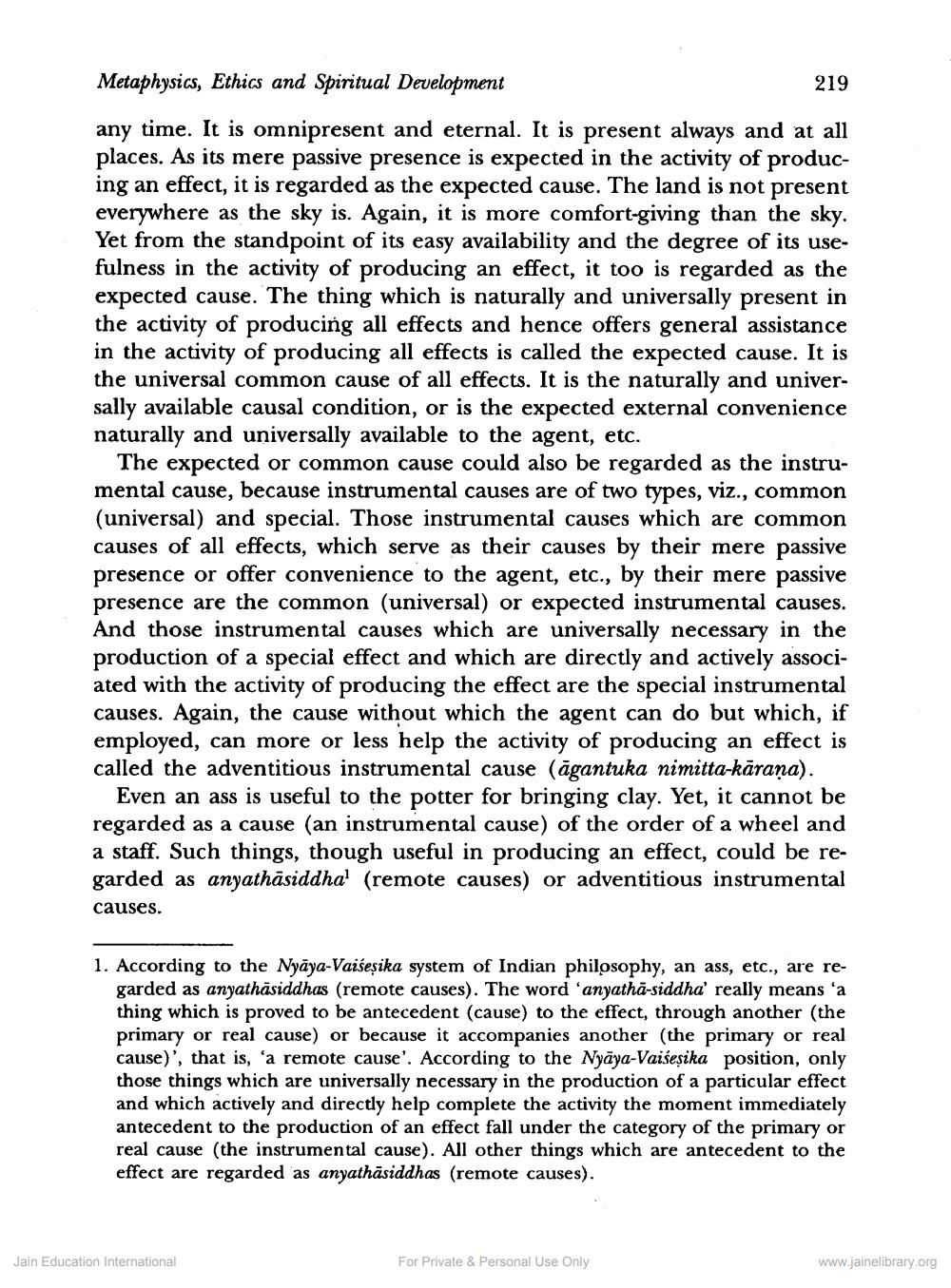________________
Metaphysics, Ethics and Spiritual Development
219
any time. It is omnipresent and eternal. It is present always and at all places. As its mere passive presence is expected in the activity of producing an effect, it is regarded as the expected cause. The land is not present everywhere as the sky is. Again, it is more comfort-giving than the sky. Yet from the standpoint of its easy availability and the degree of its usefulness in the activity of producing an effect, it too is regarded as the expected cause. The thing which is naturally and universally present in the activity of producing all effects and hence offers general assistance in the activity of producing all effects is called the expected cause. It is the universal common cause of all effects. It is the naturally and universally available causal condition, or is the expected external convenience naturally and universally available to the agent, etc.
The expected or common cause could also be regarded as the instrumental cause, because instrumental causes are of two types, viz., common (universal) and special. Those instrumental causes which are common causes of all effects, which serve as their causes by their mere passive presence or offer convenience to the agent, etc., by their mere passive presence are the common (universal) or expected instrumental causes. And those instrumental causes which are universally necessary in the production of a special effect and which are directly and actively associated with the activity of producing the effect are the special instrumental causes. Again, the cause without which the agent can do but which, if employed, can more or less help the activity of producing an effect is called the adventitious instrumental cause (āgantuka nimitta-karana).
Even an ass is useful to the potter for bringing clay. Yet, it cannot be regarded as a cause (an instrumental cause) of the order of a wheel and a staff. Such things, though useful in producing an effect, could be regarded as anyathāsiddha' (remote causes) or adventitious instrumental causes.
1. According to the Nyāya-Vaišeșika system of Indian philosophy, an ass, etc., are re
garded as anyathāsiddhas (remote causes). The word 'anyatha-siddha' really means 'a thing which is proved to be antecedent (cause) to the effect, through another (the primary or real cause) or because it accompanies another (the primary or real cause)', that is, 'a remote cause'. According to the Nyāya-Vaiseșika position, only those things which are universally necessary in the production of a particular effect and which actively and directly help complete the activity the moment immediately antecedent to the production of an effect fall under the category of the primary or real cause (the instrumental cause). All other things which are antecedent to the effect are regarded as anyathāsiddhas (remote causes).
Jain Education International
For Private & Personal Use Only
www.jainelibrary.org




